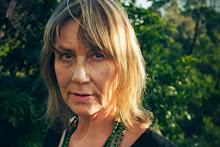
JAMES OSWALD LITTLE, AO
SINGER, TEACHER
1-3-1937 - 2-4-2012
By JEN JEWEL BROWN
JIMMY "Gentleman Jim" Little, Australia's first indigenous top 10 recording artist, has died in his sleep at his home in Dubbo, aged 75. His doctor suspected heart failure, following years of ill health caused by diabetes and kidney failure that led to an organ transplant in 2004.
After living for years in Sydney's industrial Lilyfield, Little had retired to live in Dubbo in the house he'd always wanted for his family, with lemon and orange trees he'd dreamed of out the back.
Trees were important to the singer-songwriter and his wife, Marjorie-Rose (nee Peters), who had picked the Dubbo house because of its tree-lined street. Sadly, she died just two weeks before their 55th anniversary last July.
The charming, mellifluous-voiced man of faith who would scale musical heights over seven decades, was born under a tree, to his mother Frances (nee McGee) and father James Edward "Kunkas" Little, near the Dhungala (Murray River) at Cumeragunja Station. He was a descendant and elder of the Yorta Yorta and the Yuin/Monaro peoples.
His first crib was a suitcase. The family hut was made of hessian bags, mud and newspaper. "The best way to describe it," Little said, "was highly flammable." His family followed the river and work, picking fruit, singing and playing with the Wallaga Gumleaf Band and at indigenous vaudeville shows.
At 18 months, first-born Little joined his parents and hundreds of others in the 1939 Cumeragunja Walk-Off, the first Aboriginal strike in history, over draconian conditions imposed by the Aborigines Protection Board. Disease was prevalent. Two of Little's six siblings died from tuberculosis. His mother also died, suddenly, of tetanus from a cut by an oyster shell.
Little was 13 years old and Auntie Jane helped care for the remaining five kids to stop the Aborigines Welfare Board taking them away. He attended "Cumera" Aboriginal School, Terara Public School in Nowra and Maruya Catholic School, but left at 15 and found work at a cordial factory in Nowra.
At age 16, he jumped on the back of a Sydney-bound truck to enter Australia's Amateur Hour radio talent show on radio 2GB, coming second. He formed the Continental Duo, and then the Jimmy Little Trio; the group did the town hall circuit, dances and concerts with an all-indigenous line-up.
At age 17, he met Marjorie-Rose at a barn dance, and after a three-year courtship he produced a ring but was too scared to pop the question; "Marje" just slipped it on her finger. Later, strapped for cash, he sold his beloved guitar to pay for the wedding dress.
The couple shared a house at the top of notorious Eveleigh Street in Redfern, Sydney, and their only child, historian and filmmaker Frances Claire Peters-Little, was born when he was 20. Later, when Frances became a single mother to James Henry (now a musician and performer), she said Marje told her "We'll all raise him" so the three of them did, and her father became "a loving father to my son".
Little signed a contract with EMI in 1956, and in 1963, after 17 singles, his sweetly arranged Royal Telephone hit No.1 in Sydney for Festival Records and notched triple gold.
But for some Aboriginal radicals, Little was too quiet in terms of speaking out on issues affecting indigenous people. Yet he was genuinely kind. "Don't let the gentlemanly side fool you," Frances said. "He was sharp as a blade. He knew what he wanted and he did it by shaking your hand."
Little had worked with outback indigenous charity since before the 1972 Tent Embassy in Canberra, spoken out for Aboriginal self-management, and helped Charles Perkins on the Freedom Rides, collecting evidence of unofficial apartheid in country Australia such as when the Mooree Spa Baths refused him entry on racial grounds. Ever constant was his soothing music, and not surprisingly, the public voted him 1964's Australian Pop Star of the Year in Everybody's magazine.
The crooner continued to weave his magic, extending to his versions of tracks recorded by other Australians, such as the 1999 Messenger album, which went gold. Another of his reinventions was Resonate in 2001.
Little was also active in "giving back" to his community. In his final months, he cheered the arrival of the Big Purple Truck, to provide mobile renal dialysis to Central Desert communities through partnerships with his not-for-profit Jimmy Little Foundation. He had also worked with far-flung communities since 2006 in teaching healthy eating through the "Thumbs Up" initiative, assisted by his long-term manager and drummer, Buzz Bidstrup.
Little, who was declared a National Living Treasure in 2004, was also awarded three honorary doctorates by Australian universities, and honoured at the Mo Awards, the ARIAs, the Deadlys and elsewhere, and appeared in films, plays and operas.
He was appointed an Officer of the Order of Australia in 2004 "for service to the entertainment industry as a singer, recording artist and songwriter and to the community through reconciliation and as an ambassador for indigenous culture".
Elders are bringing sand from Little's birthplace to be buried with him at Walgett, where he will lie with his wife, Marjorie. A small private service tomorrow will be followed by a state memorial service at the Sydney Opera House.
Little is survived by his daughter, Frances, his niece, opera soprano Deborah Cheetham (who wrote Pecan Summer about the Cumeragunja Walk-Off before she realised her parents had been involved), and extended family.
His grandson, James Henry, is performing at the Malthouse in Sorry Seems to Be the Hardest Word until April 14.




No comments:
Post a Comment